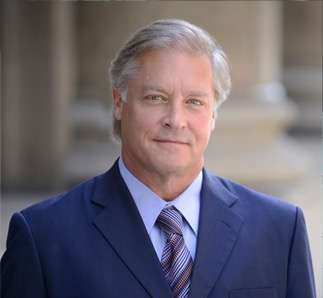About President Biden’s Executive Order To Pardon Defendants Convicted Of Simple Possession Of Cannabis

The War on Drugs raged through the 1990s, even though it had started decades earlier. In 1994, the federal government enacted the Violent Crime Control and Law Enforcement Act. Its provisions included new restrictions on the sale of firearms, expansion of sex offender registry requirements, and funding to expand law enforcement by hiring many new officers, among others. One of the provisions that has had the most far-reaching consequences of the bill was the three-strikes law, which increased mandatory minimum sentences, requiring judges to sentence almost everyone convicted of a third offense to life in prison. Although the three strikes law does not apply exclusively to drug crimes, numerous defendants are serving long prison sentences, some of them life sentences, for drug possession. Joe Biden, then a senator representing Delaware, was the bill’s main author, and he is not the only long-serving lawmaker to try to reverse the trend of mass incarceration caused by draconian mandatory minimum sentences. This month, President Biden issued an executive order pardoning defendants convicted in federal court of simple possession of cannabis. Meanwhile, the possibility still remains for people currently facing charges for possession of drugs, including cannabis, to receive prison sentences. To fight such charges, or for help exercising your legal rights after a drug conviction, contact a Pittsburgh drug crime lawyer.
Cannabis in Federal and State Law
While 18 states and the District of Columbia have decriminalized recreational cannabis, Pennsylvania has not. In some Pennsylvania cities, you will not face criminal charges for possession of small quantities of marijuana, but as of 2022, there is no statewide legalization. Meanwhile, at the federal level, cannabis remains a schedule I controlled substance, which means that federal law regards it as being as dangerous as heroin and more dangerous than schedule II controlled substances such as fentanyl and cocaine.
In the News
On September 30, President Biden issued an executive order pardoning all U.S. citizens and legal permanent residents convicted of simple possession of cannabis since 1992 in federal court or D.C. court. The pardon applies to approximately 6,500 defendants, but, according to the National Public Radio website, none of these defendants are in federal prison. Most defendants incarcerated for marijuana possession are in state prisons, including some in Pennsylvania. Biden encouraged state governors to issue similar pardons for people convicted in state criminal courts. He also instructed the Department of Justice and Department of Health to review their assessments of cannabis, which could lead to it being rescheduled so that it would no longer be a schedule I controlled substance. Life for Pot, an organization that advocates for the reform of cannabis laws, described the executive order as “window dressing,” saying that it will not result in the release of any incarcerated people from prison.
Contact Gary E. Gerson About Hope After a Drug-Related Prison Sentence
A criminal defense lawyer can help you if you are suffering the consequences of having a drug conviction on your record, even if your conviction happened long ago. Contact the law offices of Gary E. Gerson in Pittsburgh, Pennsylvania about your case.
Sources:
bbc.com/news/world-us-canada-63166964
npr.org/2022/10/06/1127302410/biden-pardon-marijuana-possession-convictions


